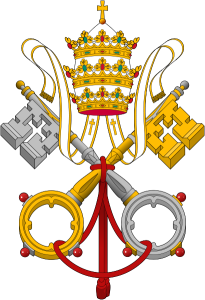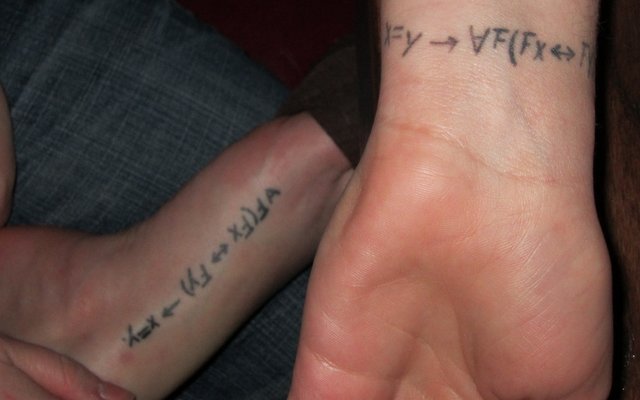podcast 379 – AI and I evaluate my debate with James White
Working through the arguments with an assist from AI.
Working through the arguments with an assist from AI.
Many Christians in the 2nd to the 4th centuries, and many since, have read the famous opening of the gospel according to John like this: In the beginning [i.e. at the Genesis creation, but not necessarily before] was the Word [i.e. the pre-human Jesus], and the Word was with God [i.e. the Father], and the Word was divine.
The rebuttal is to this blog post of mine, and it is by a Blogger user named “Annoyed Pinoy,” with whom I briefly discussed these things in the comments here. I take it that he is an evangelical Christian who is interested in theology – that’s all I know about him, other than that he is a Filipino in Illinois who is smart, curious, and… Read More »On a Rebuttal to my “How Trinity theories conflict with the New Testament” – Part 1
In this episode, a conversation with Dr. Bart Ehrman about his How Jesus Became God, and the evangelical response book How God Became Jesus. Dr. Ehrman has given other interviews in which he gives an overview of his project in the book. So skipping that, we jump right into some of his more controversial conclusions, and how he arrived at them. We also discuss the… Read More »podcast 35 – Interview with Dr. Bart Ehrman about his How Jesus Became God – Part 1
 In this last post in this series, I want to put out a few critical reactions to Baber’s “Neo-Sabellian” Trinity theory.
In this last post in this series, I want to put out a few critical reactions to Baber’s “Neo-Sabellian” Trinity theory.
My thanks to Harriet for this piece and for her interaction with us here.
No doubt, she’ll argue back; and she will probably say something about how her views have changed since she wrote this piece.
So, in no particular order:
The concept of logical form is essential to any discussion of identity, and hence to any discussion of the Trinity.
A trinitarian ought to say No. But why? Doesn’t he accept “the deity of Christ”?
Congratulations to trinities contributer Scott Williams on the publication of his “Augustine, Thomas Aquinas, Henry of Ghent, and John Duns Scotus: On the Theology of the Father’s Intellectual Generation of the Word”. His abstract: There are two general routes that Augustine suggests in De Trinitate, XV, 14-16, 23-25, for a psychological account of the Father’s intellectual generation of the Word. Thomas Aquinas and Henry of… Read More »Congrats on a Publication
The next theory up to bat is by philosophers Mike Rea of Notre Dame and Jeff Brower of Purdue University. In some ways Mike reminds me of his mentor Al Plantinga – a tall guy you don’t want to argue against unless you absolutely have to. He’s published many articles in metaphysics and philosophy of religion, and is perhaps best known for this book. He’s presently editing several books, including one of recent essays on the Trinity, which I’m really looking forward to seeing. Jeff is one of the best medieval philosophy specialists around, focusing on metaphysics, philosophy of religion, and ethics. I think he has excellent tastes in medieval philosophers. Both of these guys are top-notch, and you’ll always learn a lot from anything they publish. Both of them, by the way, have many papers available to download from their websites, and their other Trinity work will surely be discussed here at some future date. The one I’ll be discussing in this series is here. Theirs is a bold and controversial theory, and one which is quite out of step with the Social Trinitarian views that have been so popular of late.
“Material Constitution and the Trinity” (Faith and Philosophy 22:1, Jan 2005, 57-76) is a difficult and technical article, dense with argument. Philosophers will appreciate how well it’s crafted; I not sure many others can get through it! Here I’ll just lay out the broad lines of it, getting slightly more precise in future installments. Consider Ned the gnome:

How many things are pictured here? Read More »Constitution Trinitarianism Part 1: Ned and Lumpy

First, a few clarifications. By “modalist” I do not mean “Sabellian” or “monarchian.” (Those ancient catholics probably did hold to various forms of modalism, but the term is not a historical one, and can refer to other views which probably no ancient person held.) Nor do I mean modalism by definition to be heretical relative to orthodox/catholic creeds. What I mean is that at least one of these – Father, Son, Spirit – is a mode of the one God, in some sense a way that God is. That last phrase is deliberately ambiguous.
In his recent Christmas sermon the Pope said:
In all three Christmas Masses, the liturgy quotes a passage from the Prophet Isaiah, which describes the epiphany that took place at Christmas in greater detail: “A child is born for us, a son given to us and dominion is laid on his shoulders; and this is the name they give him: Wonder-Counsellor, Mighty-God, Eternal-Father, Prince-of-Peace. Wide is his dominion in a peace that has no end” (Is 9:5f.). … A child, in all its weakness, is Mighty God. A child, in all its neediness and dependence, is Eternal Father. …
God has appeared – as a child. It is in this guise that he pits himself against all violence and brings a message that is peace. (emphases and link added)
This last phrase, X has appeared as S, is ambiguous. It could mean Read More »Is the Pope a Modalist?
Richard Swinburne is one of the greatest living Christian philosophers, who has made immense contributions to philosophy of religion and philosophical theology. It is only idolatry of the past that prevents people from seeing him as great a Christian intellectual as Origen, Augustine, Aquinas, or Leibniz. In my view, he’s plainly a better, clearer, more well-rounded philosopher than any of them. “A prophet is honored… Read More »Is God a Self? – Part 7 – Swinburne
Steve Hays provides a stellar example of how not to do apologetics.
Now, on to the Fourth Lateran Council, convened by Pope Innocent III in 1215. This council, considered the 12th “ecumenical” council, was one of the all-time most important councils, which strongly shaped catholicism in the “high†middle ages. It was called, in part, to get another crusade going, after some crusading failures and set-backs. The resulting “constitutions†were proposed (and to some extent written by?)… Read More »The Orthodox Formulas 5: The 4th Lateran Council (1215)

Sir Anthony Buzzard is the author of a number of books, including the 2007 Jesus Was Not a Trinitarian.
Interesting title, no?
Some Christians will think it true but trivial.
Others, against the evidence, assert it to be false.
Others will urge that he is implicitly but not explicitly a trinitarian, i.e. that his beliefs entailed it, though he did not believe it.
I agree with with Buzzard, though, that it is both true and important. According to the gospels, Jesus’ beliefs included the numerical identity of the one true God with his heavenly Father, and we should assume him to be self-consistent on this subject, so he did not also think that the one true God is numerically identical to this: Father+Son+Spirit. (Things identical to the same thing must also be identical to each other.)
But isn’t Jesus worshiped in the New Testament? And doesn’t that show that he is God himself?
No – I agree with the substance of this recent video by Buzzard:Read More »Anthony Buzzard: That Jesus Should be Worshiped Does not Imply that He is God

I love philosophy majors. The best of them almost always develop a nerdy and warped sense of humor – and I mean that in the best way. 🙂
These two young ladies, recent alumnas of our department, decided to get complementary tattoos. (Sober, they swear!)
In each case, the tattoo artist left off the two initial universal quantifiers: AxAy (I can’t find the symbol codes for the upside down A representing the universal quantifier – so please imagine those A’s upside down.) They would read: For any x whatsoever and for any y whatsoever…
Now to the tattoos. “F” is supposed to be, either a predicate or a property. On the right tattoo (wrist) the right, closing parentheses is just out of view.
One of the tattoos says something nearly all philosophers agree is true (a rarity!) while the other is held to be false by many. Here’s your homework, dear reader:Read More »A Tale of Two Tattoos (Dale)
The scene, an American evangelical church, around Christmas time. The pastor prays, Heavenly Father, than you so much for sending us your Son! We’re so grateful for your perfect of gift of forgiveness, of eternal life. Help us, this season, to remember the reason for it. God, thank you for coming to be born, to die for us. In your name we pray, amen. At… Read More »a present you should return: Christmas confusion
Respected Catholic philosopher Alfred J. Freddoso corrects some pervasive baloney about persons which theologians are still repeating, these 22 years later! The asterisk marks his footnote – this whole passage is an aside in a very rich paper of his. Out of politeness, I omit the author of the wrongheaded passage, and I’ve added some bold highlighting to the whole thing. We’ve been over some… Read More »a quote every theology student working on the Trinity or Incarnation should memorize
Does Christianity trump Philosophy?
Is God’s spirit in the New Testament supposed to be a self in addition to God and his Son?